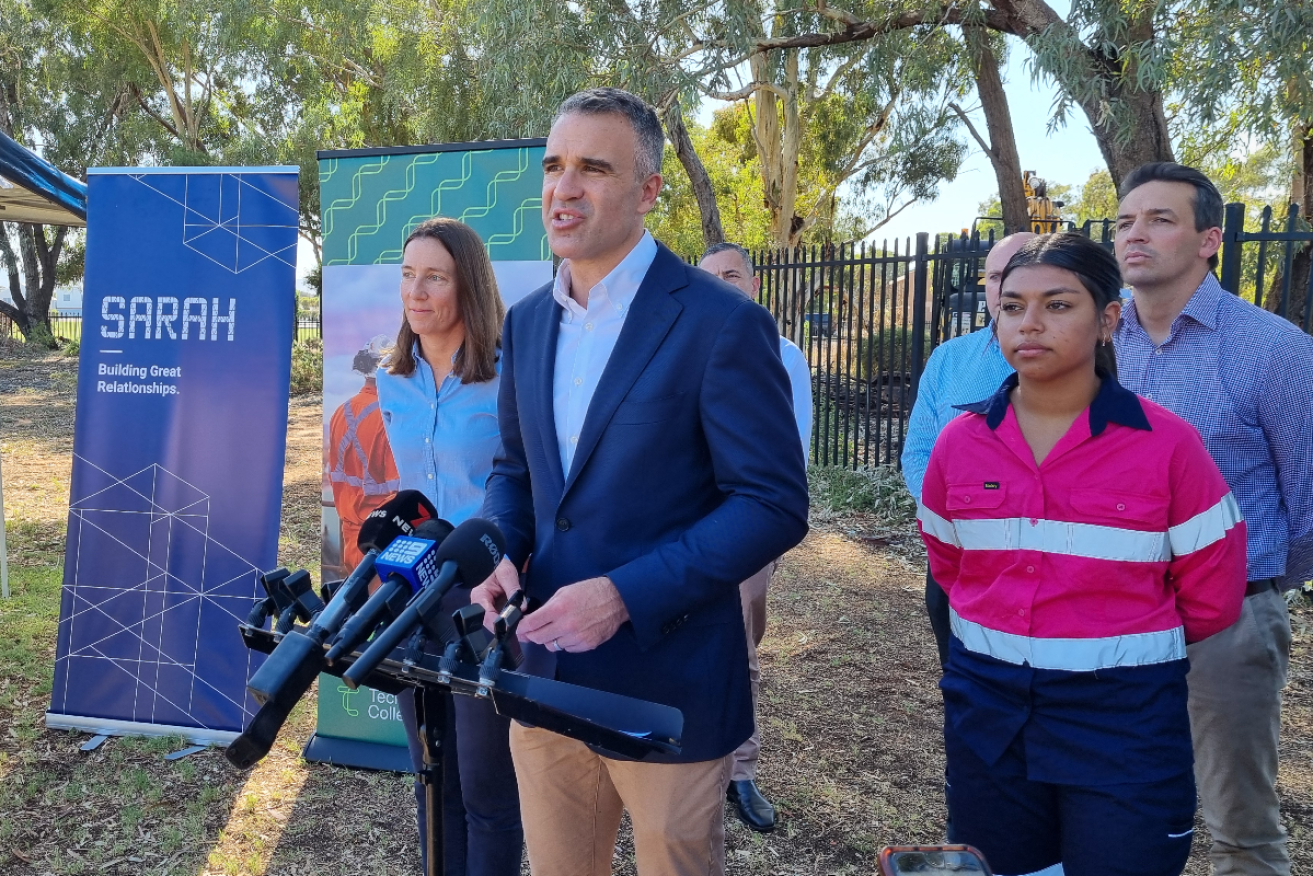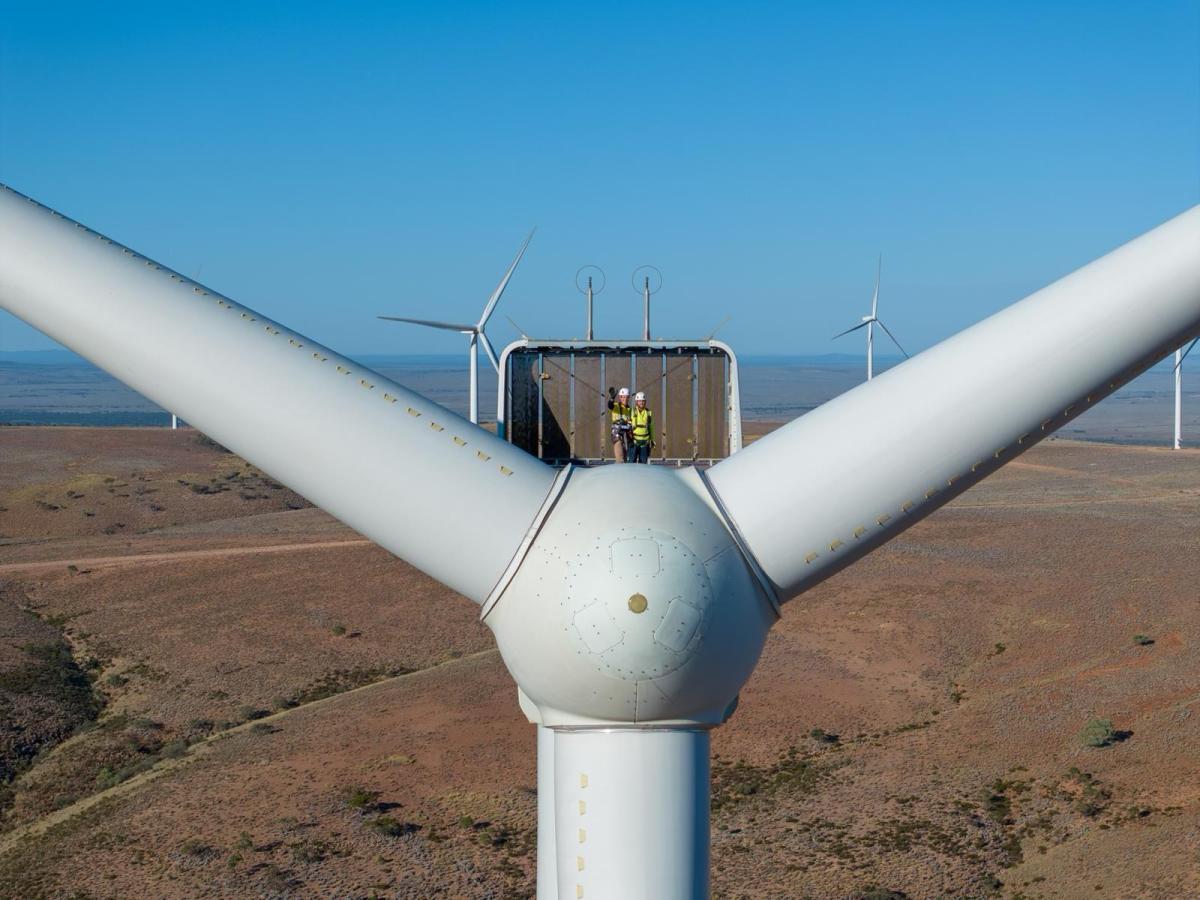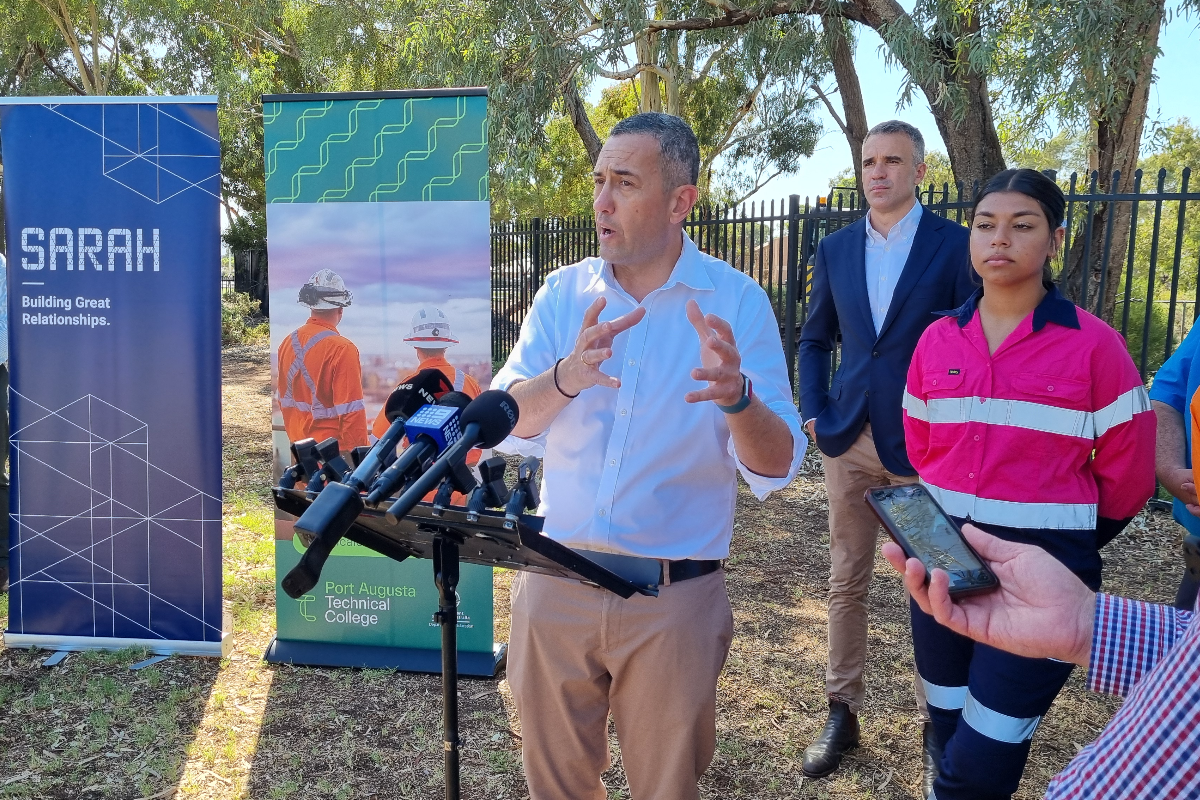State government brings forward net zero renewables target to 2027
The Malinauskas Government will bring forward South Australia’s net zero electricity target from 2030 to 2027, arguing the more ambitious deadline is possible due to investment in hydrogen and other renewables.


Premier Peter Malinauskas announcing the government's new renewables target in Port Augusta on Tuesday. Photo: Thomas Kelsall/InDaily
The target, if achieved, would mean South Australia’s net emissions from electricity production will be zero in three years.
It does not, however, mean that gas-fired power generation will be phased out of the South Australian market. It only means emissions will be zero on a net basis.
Over the last 20 years, South Australia’s energy system has gone from one per cent renewable energy production to around 70 per cent, according to government data.
There were also 289 days last year when renewable energy production covered all of South Australia’s electricity consumption demand.
Speaking in Port Augusta on the third day of the government’s “state prosperity project”, Premier Peter Malinauskas said the government could bring forward the 2030 target due to its hydrogen energy investment.
He also said the transition to renewables “hasn’t been an easy journey”.
“There has been sacrifice, including right here in Port Augusta where the Northern Power Station was lost,” Malinauskas said.
“But those sacrifices are set to yield great dividends for the prosperity of our state.”
Malinauskas also stressed that gas-fired power generation will still be a part of South Australia’s energy market.
“We still believe that gas-fired power generation will have a role to play over the immediate future and the medium term,” he said.
“Gas fired generation can be an important firming service to actually unlock more renewable investment.
“But even though we’ve got gas filling the market, we know that we’ve got more renewables that will be produced that will be exported outside the state.”

Premier Peter Malinauskas on top of a wind turbine at the Lincoln Gap Wind Farm on Tuesday. Photo: supplied
The state government has not changed its target to reach overall net zero emissions by 2050.
That task will require decarbonising other sectors of the economy, particularly steel production and transport.
The state government announced on Sunday that it was beginning negotiations with the Whyalla Steelworks’ owner, GFG Alliance, on supplying hydrogen to decarbonise some of its industrial processes.
The Whyalla Steelworks is the state’s biggest polluter, with two tonnes of carbon dioxide produced for every tonne of steel.
Energy and Mining Minister Tom Koutsantonis said the government’s 2050 net zero target may be brought forward but it was too early to make that decision now.
“Ultimately, the 2050 targets are very, very important, but the 2027 new target is the one that’s relevant to this generation,” he said.
“So, I think you will see revisions of that as time moves on because we are moving at leaps and bounds, but it’s too early to make that decision now.”
Koutsantonis also denied that bringing forward the target would negatively affect electricity grid stability.
He said government intervention since the 2016 state-wide blackout had made the electricity grid “resilient, stable and rigorous”.

Energy and Mining Minister Tom Koutsantonis speaking to media in Port Augusta on Tuesday. Photo: Thomas Kelsall/InDaily
“We’ve got an energy market operator that is now paying a lot more attention,” he said.
“We’ve got a lot more grid scale batteries that can respond very, very quickly to any disturbance in the system, and we have a lot more controls.”
Koutsantonis also said more renewable energy production will lower energy prices for consumers.
“The more renewable energy we have in the system… means the less gas we burn, and the less gas we burn means the cheaper our power prices are,” he said.
“We are reaching that tipping point now before every other jurisdiction where renewable energy is going to have a dramatic impact on retail prices.
“And people are seeing it right now in their market offers.”




